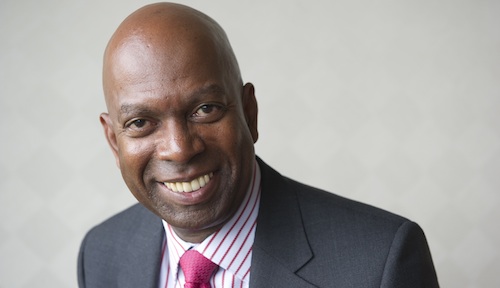Vodacom’s multibillion-rand joint venture in the Democratic Republic of Congo (DRC), one of its most important markets outside SA, appears to be falling apart.
The JSE-listed cellular group’s partner in the business, Congolese Wireless Network (CWN), is believed to be on the verge of serving papers in a Kinshasa court. (One source says papers have already been lodged, but Vodacom has disputed this.)
If CWN does take the matter to court, and a judge finds in its favour, then Vodacom could find its investment in one of Africa’s most populated countries in jeopardy.
This would represent a significant setback for the cellular group, which is trying to diversify its revenues geographically. Unlike SA-based rival MTN, the vast bulk of Vodacom’s sales still come from its home market of SA.
It is understood that the relationship between Vodacom and CWN, which is headed by Congolese businessman Alieu Conteh, has been strained for some time. CWN owns 49% of Vodacom DRC, with Vodacom holding the rest through a subsidiary based in Mauritius.
It is against the Mauritian-registered Vodacom subsidiary that CWN is understood to be planning to take legal action.
A source close to Vodacom says CWN has threatened court action several times in the past two years but has never followed through with its threats.
Even if the matter doesn’t go to court, it leaves a big question mark as to whether Vodacom DRC can continue operating in its current form given the fractured nature of the relationship between the shareholders.
Vodacom isn’t saying much. In a written response to a detailed set of questions from TechCentral, all chief officer for corporate affairs Bob Collymore (pictured) will say is: “Vodacom has been in discussions with its minority shareholder in the DRC that may result in changes to the corporate or financial structure of Vodacom DRC.”
This echoes information contained in Vodacom’s prelisting statement, issued in March 2009.
Collymore says CWN has not served court papers on Vodacom related to its discussions with the Congolese company. “We have and will continue to seek an amicable solution and therefore cannot prejudice the discussions by making detailed public comment at this stage.”
Conteh, who is understood to be in SA at the moment — possibly for talks with Vodacom management — could not be reached for comment on his SA or DRC mobile numbers. The calls were not routed to voicemail either.
A source says CWN shareholders are angry with Vodacom over the latter allegedly repatriating profits from the joint venture, money CWN apparently believes should stay in the DRC — CWN is understood to want Vodacom DRC to pay a more generous dividend to shareholders.
Vodacom’s relationship with Conteh goes back to 2001 when the SA group acquired 51% of his then-fledgling mobile operation in the DRC. The network operating licence held by Conteh’s company was transferred to Vodacom DRC.
Conteh was the first businessman in the war-torn central African country to receive a licence from the government to build a cellular network.
Relations between CWN and Vodacom haven’t always been as unpleasant as they are now. In the first few years after the DRC joint venture was established, the business performed well. However, in recent years, it appears to have lost focus.
Despite investing more than R5bn in network infrastructure since inception, Vodacom DRC’s market share has declined sharply in recent years — from 44% in September 2007 to 36% in September 2009. Customer churn has risen from 42% to 58% in the same period. And between 2008 and 2009, average revenue per user plummeted from R65 to just R39.
The business had 4,4m subscribers at the end of September, making it Vodacom’s third largest operation after SA and Tanzania. It generated R1bn in revenue and R95m in earnings (before interest, tax, depreciation and amortisation) for Vodacom in the six months to 30 September.
However, the market potential is still enormous: cellphone penetration in the DRC remains low at less than 20%. — Duncan McLeod, TechCentral
- More exclusive coverage: Congo partner accuses Vodacom of fraud





